In this month’s Inspired By… post, we’re talking about a design style and ethos which is particularly close to our hearts here at Hygge & Cwtch Design Studio. It’s the centuries-old Japanese philosophy of Wabi Sabi.
What is it?
Wabi Sabi is a concept centred around the acceptance of imperfection, seeing beauty in nature in it’s most raw and purest form, flaws and all. Heavily influenced by Buddhist teaching, Wabi Sabi is a cultural way of life in Japan, and in many ways is worlds away from the Western trend for slick and ‘perfect’ aesthetics. Instead, it celebrates the “imperfect, impermanent and incomplete” (Koren, 1994*).
The Wabi Sabi philosophy sits very well with us here at Hygge & Cwtch, as our own ethos is about creating beautiful spaces where you can feel most at home. The clue is in the name – ‘hygge’ is a concept we live and design by, and while hygge has a more cosy appeal, it otherwise shares the core principles of simplicity and authenticity with the Wabi Sabi concept. We love the idea of ‘incomplete’ interior design as it enables the inhabitants to shape the space as they live in it, allowing them to truly relax and enjoy life in their home.
Influencing Interior Design
In terms of interior design, think curves, organic shapes, uneven surfaces, understated textures and a pared back look. Simplicity is at the heart of the Wabi Sabi design style, so less is more when it comes to styling. And the more imperfect a material or finish, the better. We’re talking smashed and glued back together kind of imperfect.
The colour palette should be neutral and earthy, no abrupt shots of colour or print. Add texture to the walls by embracing natural materials (we painted the old stone fireplace wall in our Trenance project, below, for that pared back, imperfect finish), or using a chalk or limewash paint. You can even buy wallpaper or murals – such as this one from Photowall – to easily create the bare plaster effect, giving just enough interest without creating a stand out feature. A Wabi Sabi room is full harmony and balance, no individual items vying for attention.
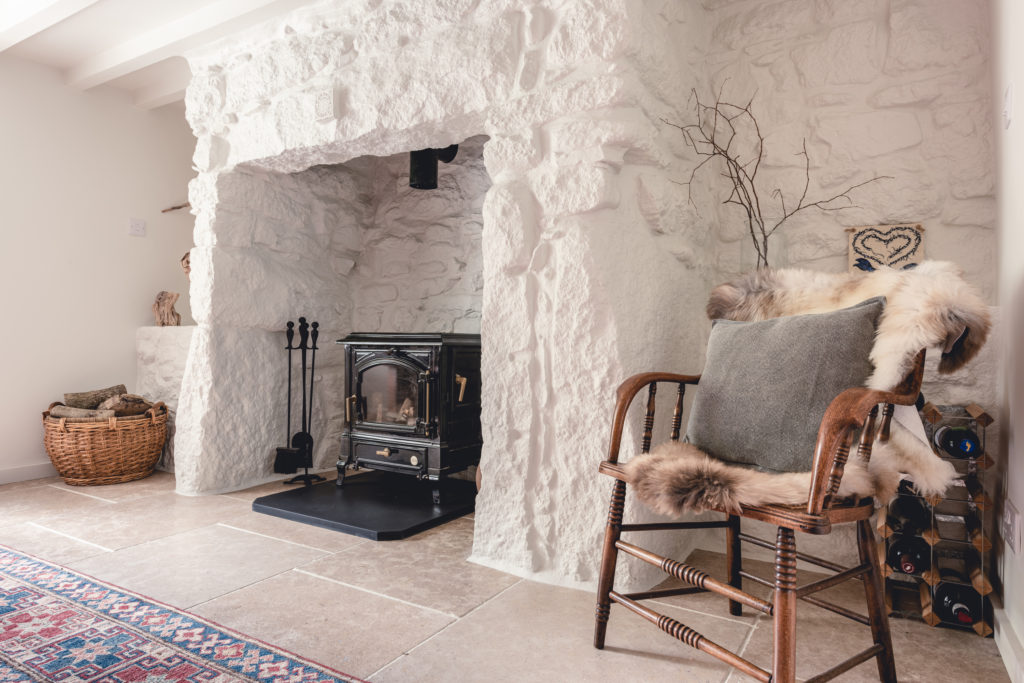
The key is to look for the beauty in every item. Whether it’s the natural rawness of a material or the craftsmanship in creating something with so much detail and nuance. It’s never imperfect or incomplete, it’s unique. Our recent post blog about Biophilic design goes hand in hand with Wabi Sabi, as both are centred around being inspired by nature and bringing the outside in.
Are you inspired?
Wabi Sabi is much more than an interior design choice, it can influence our outlook and lifestyle for the better. But your home, the place where you can most be yourself and the heart of your wellbeing, is a good place to start.
We have plenty more interior inspiration over on our Pinterest board. If you’d like help with bringing your this simply beautiful concept to life at home, get in touch. Before you go, here’s a little inspiration for creating a Wabi Sabi-inspired living space.
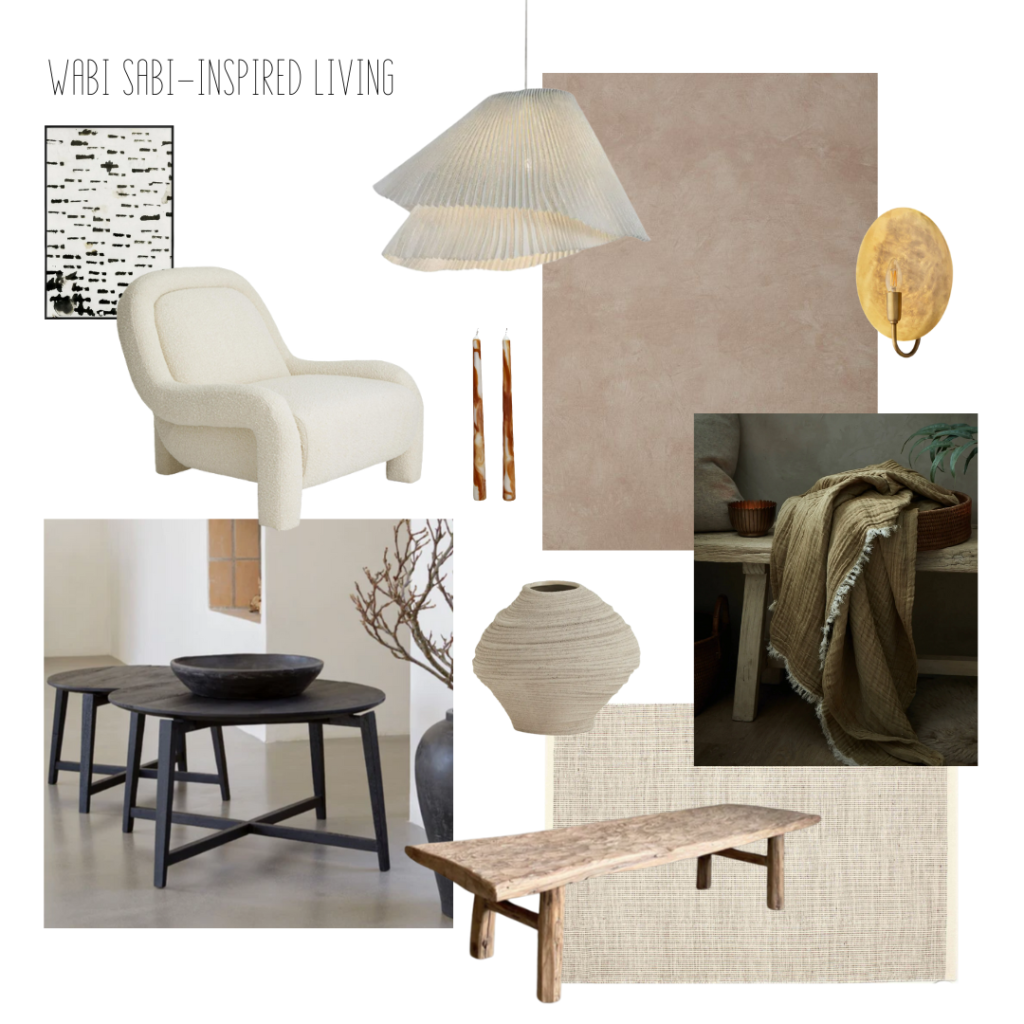
Black & White 16-01 poster – Juniqe
Curved Ellis Chair – Soho Home
Tempo Vivace Pendant Light – Heals
Cha Taper Candles – Glassette
Brass Moon Wall Light – Pooky
Artisan Chalk Wash Pink Clay Paint – Craig & Rose
Mustard Cotton Throw – Layered Lounge
Woven Wool Rug in Brown – Rug Vista
Vintage Elm Coffee Bench – Design Vintage
Stoneware Vase – H&M
Black Teak Coffee Table – Design Vintage
*Koren, Leonard (1994). Wabi-Sabi for Artists, Designers, Poets and Philosophers. Stone Bridge Press. ISBN 1-880656-12-4
Previous Post
Next Post
For more of our latest projects, follow along on instagram at @hyggeandcwtchstudio.
© hygge and cwtch creative studio 2025 | all rights reserved | privacy policy | cookie policy
considered Art & INTERIOR Design for Beautiful Spaces
cardiff, CORNWALL & WALES
Hygge Cwtch
&
quicklinks
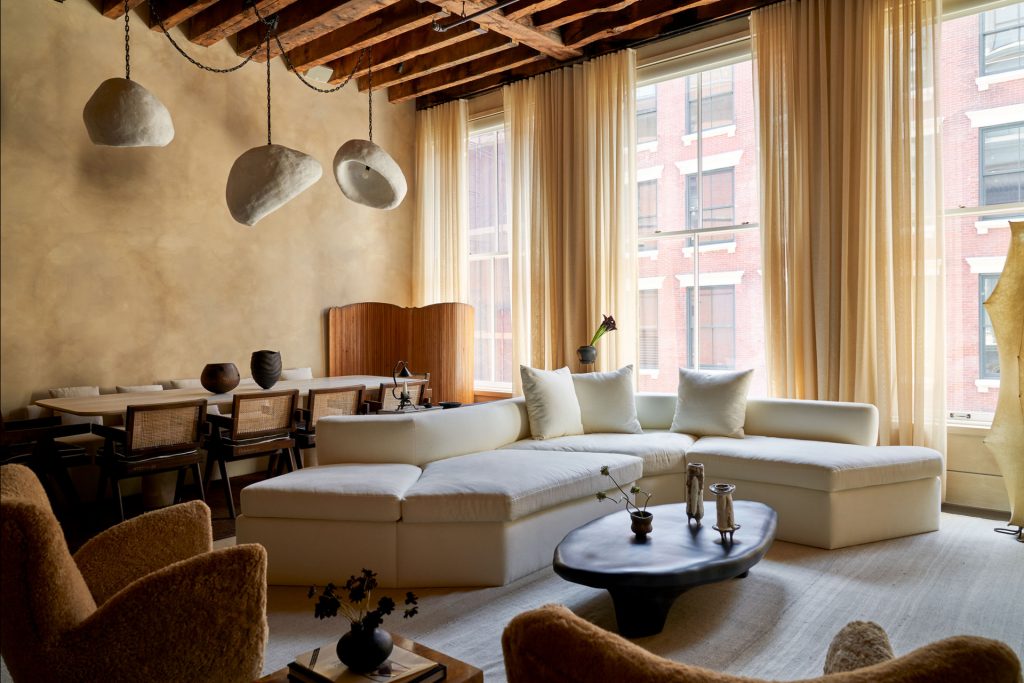
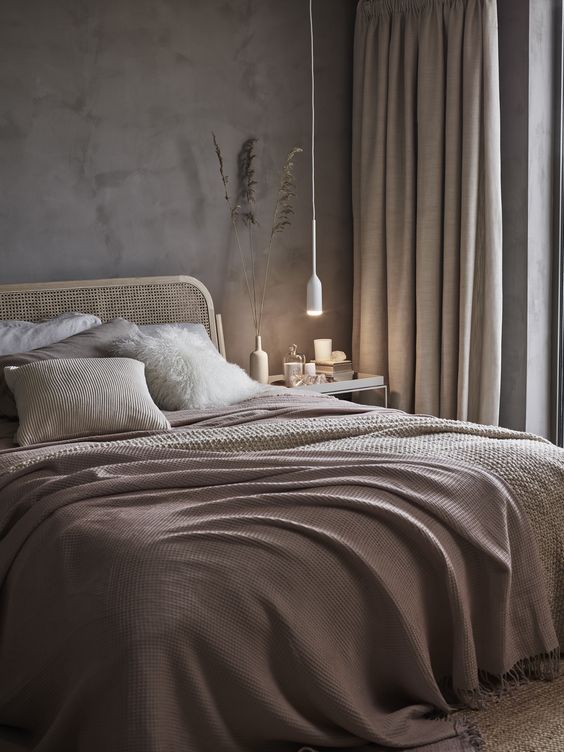
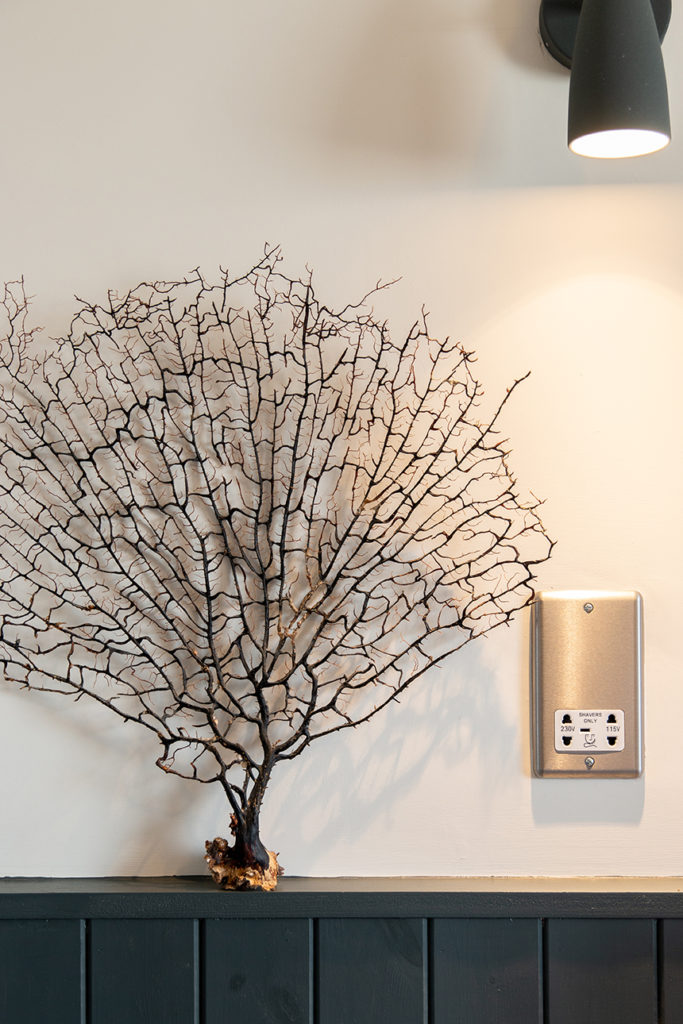
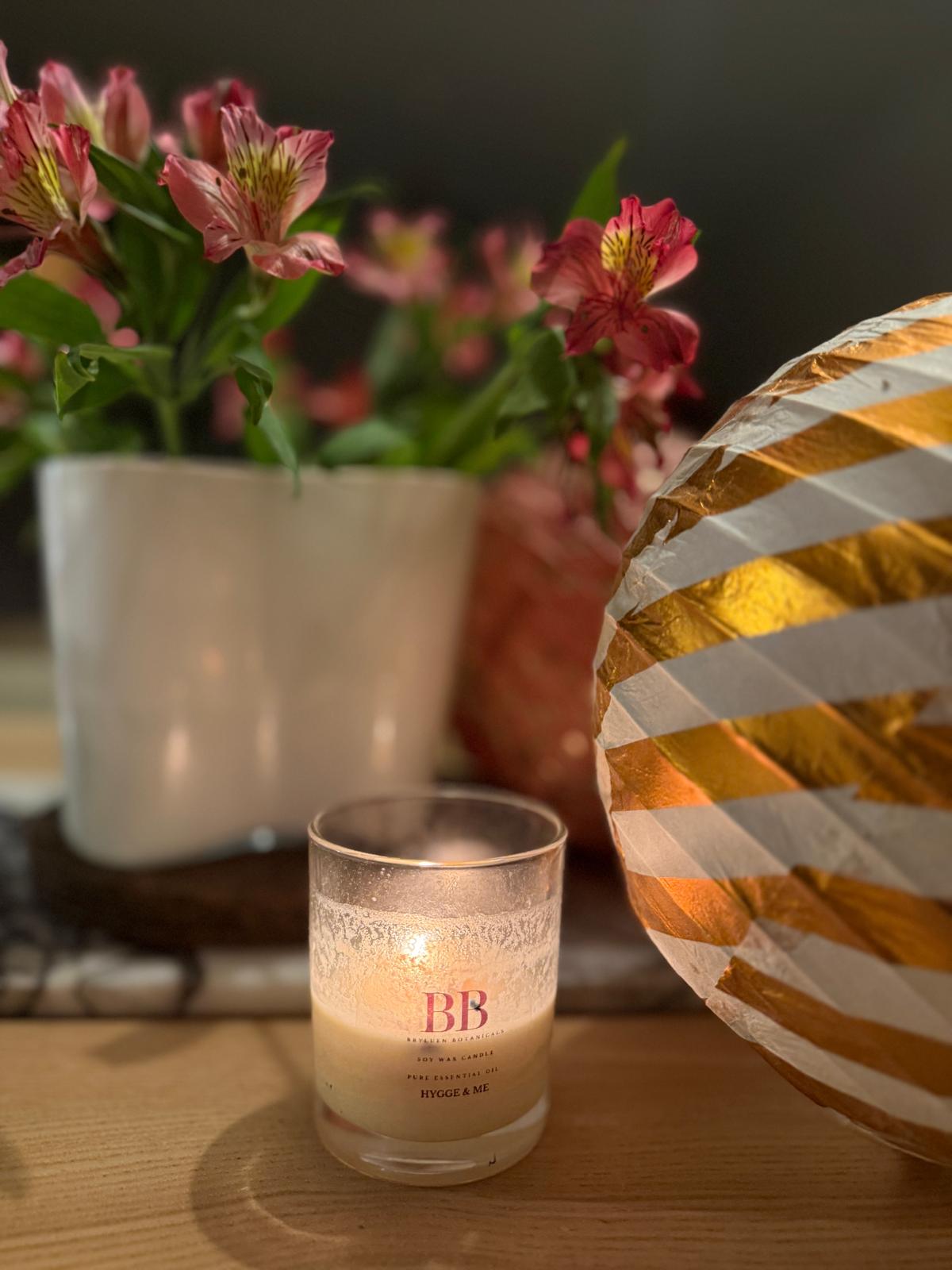
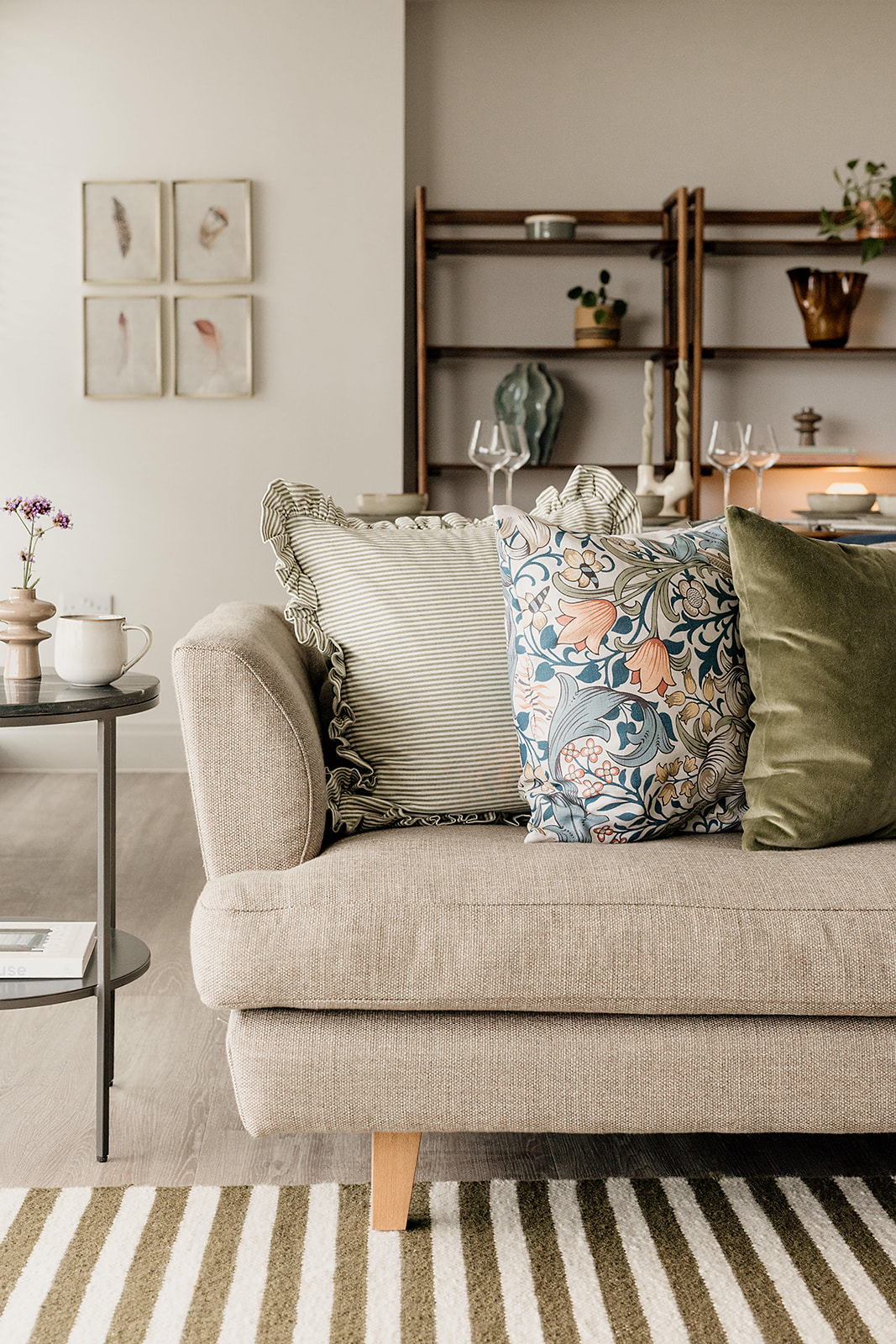
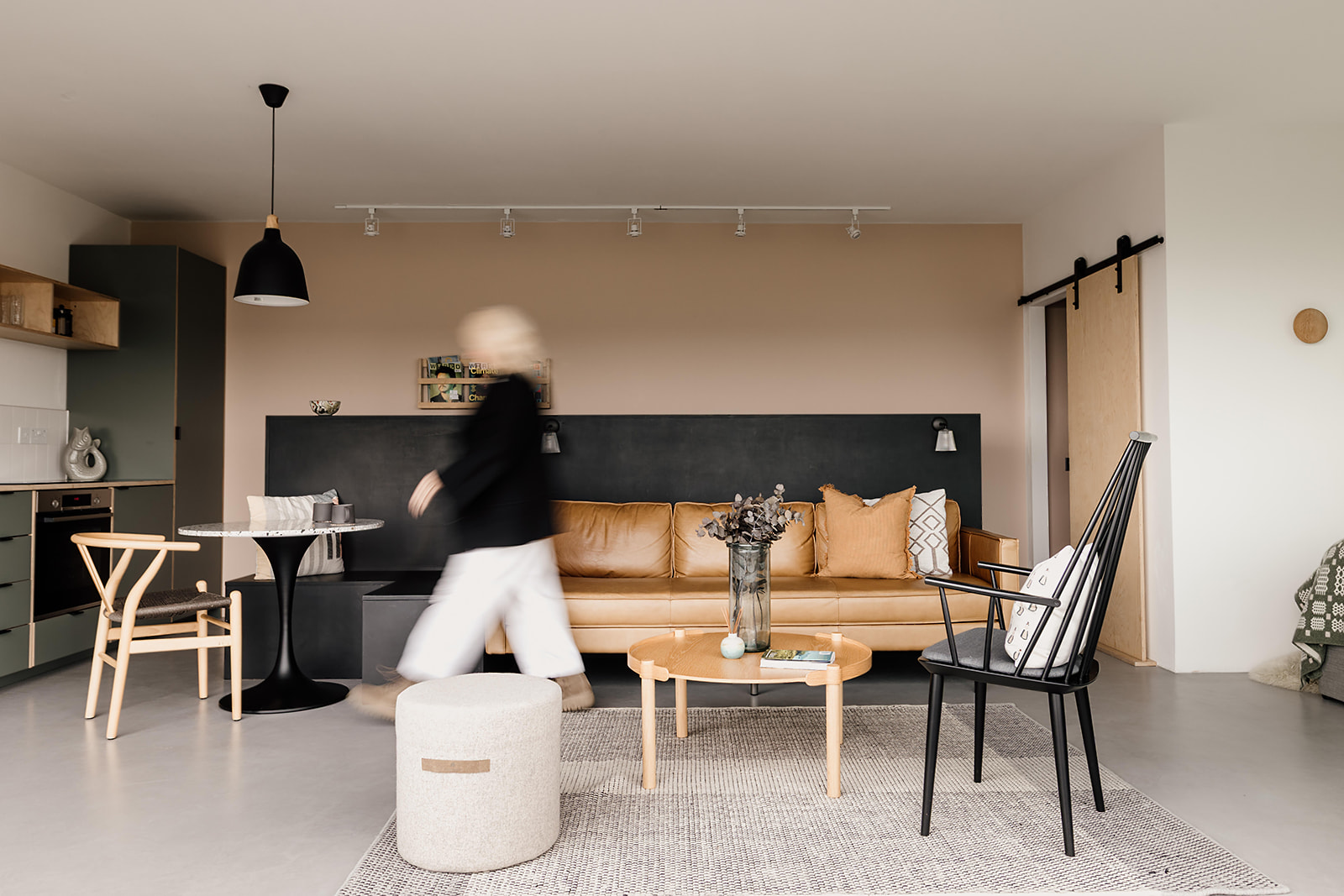



+ Show / Hide Comments
Share to: